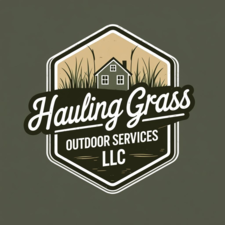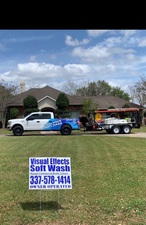
Get matched with top gas log pros in Charenton, LA
Enter your zip and get matched with up to 5 pros
Need a pro for your gas log service project in Charenton, LA?
Verified Reviews for Gas Log Service pros in Charenton, LA
*The Angi rating for Gas Log Service companies in Charenton, LA is a rating based on verified reviews from our community of homeowners who have used these pros to meet their Gas Log Service needs.
*The HomeAdvisor rating for Gas Log Service companies in Charenton, LA is a rating based on verified reviews from our community of homeowners who have used these pros to meet their Gas Log Service needs.
Last update on January 11, 2026
Find Gas log pros in Charenton

AppliancePartsPros.com
AppliancePartsPros.com
Since 1999, we've helped millions of do-it-yourselfers save money and fix their broken appliances quickly by providing quality appliance parts and free repair advice. We are only an online appliance parts retailer that offers a 365 day warranty and fast shipping. We also offer technical advice and diagnosis totally free 6 days a week. If you are interested in repairing your own appliance, please call us at 1-877-477-7278 or click live chat on our web site. We will help diagnose the problem and provide you with all the necessary information for the repair free of charge. It's better with the Pros!™ Avoid costly service calls - visit us at http://www.appliancepartspros.com
"Beware of shipping issues with this company. Ordered an ice maker installation kit on 10/10/25. Shipping was due no later than 10/20 according to company and FedEx tracking. FedEx tracking showed the package at their facility for 8 days without moving beginning on 10/15. Called FedEx 3 times. Each time they said they cannot find package and I have to contact shipper. Shipper has to make a claim, they will not mark it as lost. Called Appliance Parts Pros twice. Each time they say FedEx has to mark package lost before they will do anything. They also state they have to wait 14 days from them before doing anything because of their contract with FedEx. I don't care about their contract, I want what was ordered and paid for. Just going in circles with them and FedEX. If they shipped after 14 days it would be 22 days from that point, 32 days from the date of order if they shipped it that day. There was a deadline for installing this part before tenants arrive. They did not care, would not m"
Ron R on October 2025
Since 1999, we've helped millions of do-it-yourselfers save money and fix their broken appliances quickly by providing quality appliance parts and free repair advice. We are only an online appliance parts retailer that offers a 365 day warranty and fast shipping. We also offer technical advice and diagnosis totally free 6 days a week. If you are interested in repairing your own appliance, please call us at 1-877-477-7278 or click live chat on our web site. We will help diagnose the problem and provide you with all the necessary information for the repair free of charge. It's better with the Pros!™ Avoid costly service calls - visit us at http://www.appliancepartspros.com
"Beware of shipping issues with this company. Ordered an ice maker installation kit on 10/10/25. Shipping was due no later than 10/20 according to company and FedEx tracking. FedEx tracking showed the package at their facility for 8 days without moving beginning on 10/15. Called FedEx 3 times. Each time they said they cannot find package and I have to contact shipper. Shipper has to make a claim, they will not mark it as lost. Called Appliance Parts Pros twice. Each time they say FedEx has to mark package lost before they will do anything. They also state they have to wait 14 days from them before doing anything because of their contract with FedEx. I don't care about their contract, I want what was ordered and paid for. Just going in circles with them and FedEX. If they shipped after 14 days it would be 22 days from that point, 32 days from the date of order if they shipped it that day. There was a deadline for installing this part before tenants arrive. They did not care, would not m"
Ron R on October 2025
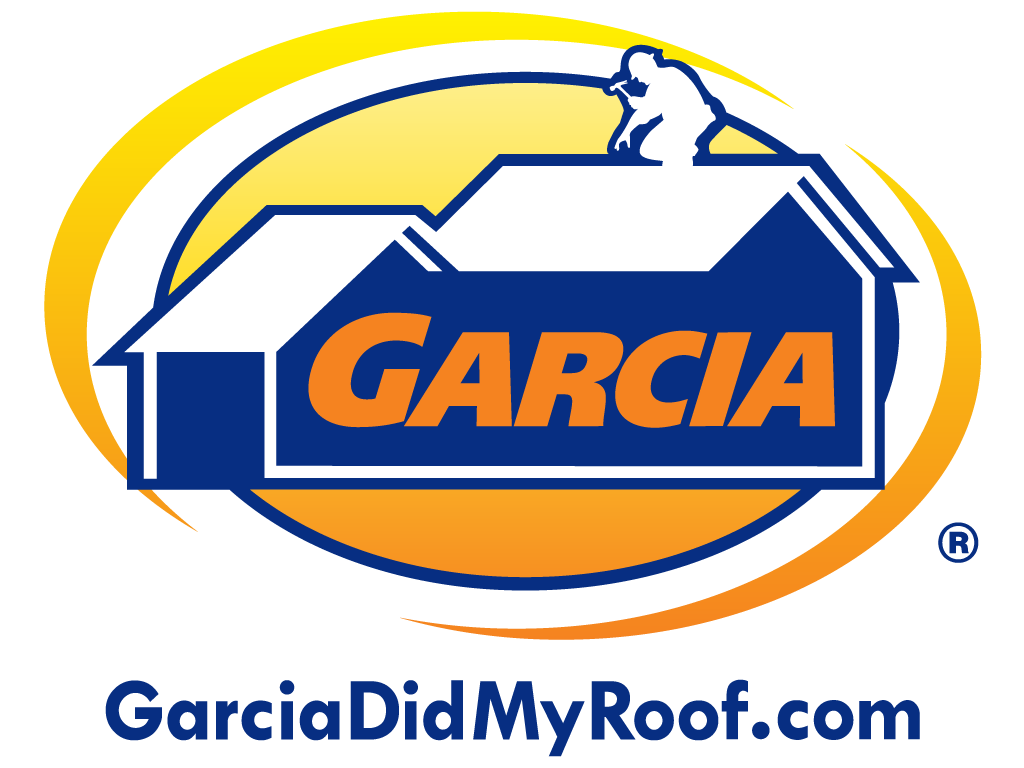
Garcia Roofing
Garcia Roofing
For over 33 years, Garcia Roofing has been a trusted leader in roofing services, providing top-quality craftsmanship and unmatched customer service. Established in 1992, we have built a reputation for excellence in both residential and commercial roofing, with a commitment to safety, quality, and family values at the core of everything we do. Whether you need roof installation, repair, or restoration, Garcia Roofing is here to deliver expert solutions. We specialize in shingles, metal, slate, Spanish tile, and cedar shake roofing, as well as Fortified Roofing systems for enhanced storm protection. Additionally, we offer custom roofing accessories, such as finials, dormers, and metal awnings, to enhance both the aesthetic and functionality of your home. With flexible financing plans and labor warranties of up to 25 years, we provide long-lasting quality and affordability for homeowners and businesses across Louisiana and Mississippi.
"Very happy with the work Garcia did on my roof. It looks great. The crew that did the work was very professional and cleaned up while they did the job. Once they were done, I couldn't tell that anyone was in my yard. Extremely happy."
Perry R on October 2023
For over 33 years, Garcia Roofing has been a trusted leader in roofing services, providing top-quality craftsmanship and unmatched customer service. Established in 1992, we have built a reputation for excellence in both residential and commercial roofing, with a commitment to safety, quality, and family values at the core of everything we do. Whether you need roof installation, repair, or restoration, Garcia Roofing is here to deliver expert solutions. We specialize in shingles, metal, slate, Spanish tile, and cedar shake roofing, as well as Fortified Roofing systems for enhanced storm protection. Additionally, we offer custom roofing accessories, such as finials, dormers, and metal awnings, to enhance both the aesthetic and functionality of your home. With flexible financing plans and labor warranties of up to 25 years, we provide long-lasting quality and affordability for homeowners and businesses across Louisiana and Mississippi.
"Very happy with the work Garcia did on my roof. It looks great. The crew that did the work was very professional and cleaned up while they did the job. Once they were done, I couldn't tell that anyone was in my yard. Extremely happy."
Perry R on October 2023

BDC Tree Service
BDC Tree Service
You won’t have the same bad experience when you call us. From storm damage, cleanup and repair, tree removal, or tree trimming services. Our courteous staff will handle your problems professionally to your satisfaction. When our work is done, your yard will look as though nothing ever happened. Our staff is always professional, courteous, and respectful to you no matter what time you call for tree service
"Well, I had called many smaller companies to get an estimate for taking down and removal of 3 large pine and 1 med oak tree. No one came or returned our call. As I was passing this donut shop I saw this huge truck with BDC tree removal and a phone number I memorized until I came to a stop light and called. Mr. Zeto answered came to the house and gave a quote. The last company we used required money down before they would start, Mr. Zeto said that wasn't how he conducted business. They already scheduled for another job but assured me he would get the job done on a particular and he did. We were highly pleased with the service and the promptness of his crew, also there was someone to grind the stumps and remove the excess mulch. We recommend BDC Tree Service. Give them a call you will be satisfied. Special thanks to Carl, Damion, Nick, Eric, and Johnny."
JL J on August 2022
You won’t have the same bad experience when you call us. From storm damage, cleanup and repair, tree removal, or tree trimming services. Our courteous staff will handle your problems professionally to your satisfaction. When our work is done, your yard will look as though nothing ever happened. Our staff is always professional, courteous, and respectful to you no matter what time you call for tree service
"Well, I had called many smaller companies to get an estimate for taking down and removal of 3 large pine and 1 med oak tree. No one came or returned our call. As I was passing this donut shop I saw this huge truck with BDC tree removal and a phone number I memorized until I came to a stop light and called. Mr. Zeto answered came to the house and gave a quote. The last company we used required money down before they would start, Mr. Zeto said that wasn't how he conducted business. They already scheduled for another job but assured me he would get the job done on a particular and he did. We were highly pleased with the service and the promptness of his crew, also there was someone to grind the stumps and remove the excess mulch. We recommend BDC Tree Service. Give them a call you will be satisfied. Special thanks to Carl, Damion, Nick, Eric, and Johnny."
JL J on August 2022
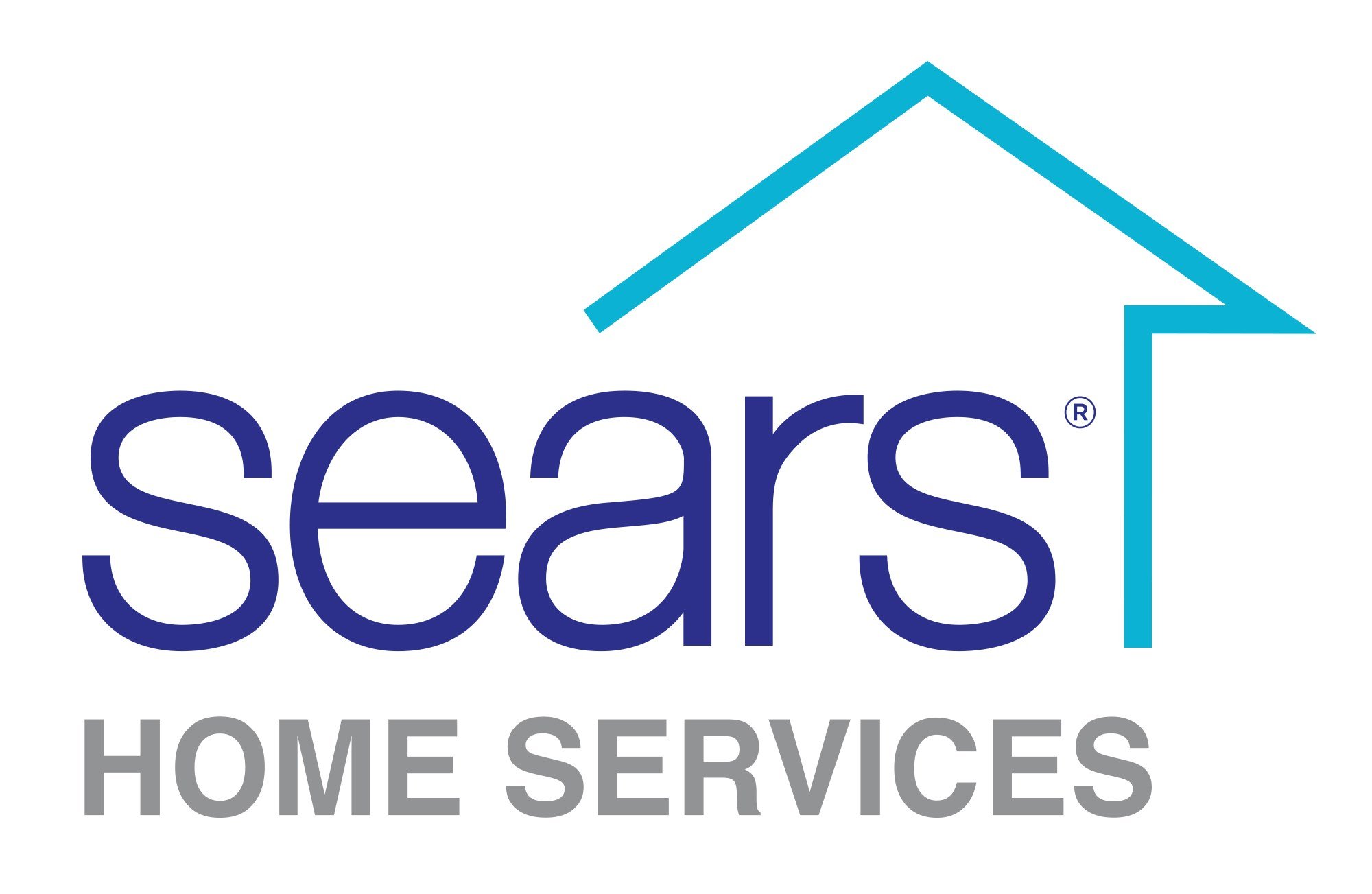
Sears Appliance Repair
Sears Appliance Repair
Sears Home Services is America’s #1 appliance services provider. Our thousands of experts based throughout the U.S. deliver guaranteed quality and workmanship. We work on most makes and models whether they were purchased at Sears or not. We take care of your house so you can enjoy your home. Only Sears offers 3 unique ways to save on appliance repairs! 1. Standard Repair Service + 90 Day Guarantee • Cost is provided after technician diagnoses the problem • 90 day guarantee on parts and labor* 2. Flat Repair Cost + Extended Repair Coverage • $249.99 or $299.99 pre-set price (depending on type of appliance) • 1 year of coverage up to $500 for any additional repairs (includes parts)** 3. Flat Repair Cost + Multiple Appliance Coverage • $129.99 for your initial repair with purchase of Home Warranty Appliance Plan • 1 year of repair coverage for up to 10 appliances with 11 subsequent monthly payments of $49.99*** Book your appointment with a Sears expert technician today! * 90 Day Guarantee: The limited warranty provides that if within 90 days from the date of your Sears in-home repair your appliance fails to operate for reasons related to the original repair service when used normally in accordance with manufacturer guidelines, we will replace any parts that failed due to defects in the material or workmanship and perform any labor related to the original repair free of charge. Excludes damage caused due to service provided by any party other than Sears. This warranty gives you specific legal rights, and you may have other rights that vary by state. ** Appliance must be less than 10 years old to qualify for Service Smart Agreement. Covers up to $500 in parts and labor. Limitations apply. *** Limitations apply”
"Technicians very professional Repair seems to be working"
Noel R on October 2018
Sears Home Services is America’s #1 appliance services provider. Our thousands of experts based throughout the U.S. deliver guaranteed quality and workmanship. We work on most makes and models whether they were purchased at Sears or not. We take care of your house so you can enjoy your home. Only Sears offers 3 unique ways to save on appliance repairs! 1. Standard Repair Service + 90 Day Guarantee • Cost is provided after technician diagnoses the problem • 90 day guarantee on parts and labor* 2. Flat Repair Cost + Extended Repair Coverage • $249.99 or $299.99 pre-set price (depending on type of appliance) • 1 year of coverage up to $500 for any additional repairs (includes parts)** 3. Flat Repair Cost + Multiple Appliance Coverage • $129.99 for your initial repair with purchase of Home Warranty Appliance Plan • 1 year of repair coverage for up to 10 appliances with 11 subsequent monthly payments of $49.99*** Book your appointment with a Sears expert technician today! * 90 Day Guarantee: The limited warranty provides that if within 90 days from the date of your Sears in-home repair your appliance fails to operate for reasons related to the original repair service when used normally in accordance with manufacturer guidelines, we will replace any parts that failed due to defects in the material or workmanship and perform any labor related to the original repair free of charge. Excludes damage caused due to service provided by any party other than Sears. This warranty gives you specific legal rights, and you may have other rights that vary by state. ** Appliance must be less than 10 years old to qualify for Service Smart Agreement. Covers up to $500 in parts and labor. Limitations apply. *** Limitations apply”
"Technicians very professional Repair seems to be working"
Noel R on October 2018
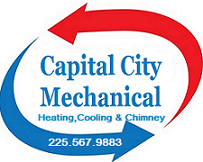
Capital City Mechanical Service marc reynolds
Capital City Mechanical Service marc reynolds
Commercial & residential A/C service, repair, installation & chimney cleaning, repair. We also perform Duct Cleaning. We are your complete Home Comfort Specialists. Accept all forms of payment.
Commercial & residential A/C service, repair, installation & chimney cleaning, repair. We also perform Duct Cleaning. We are your complete Home Comfort Specialists. Accept all forms of payment.
Crossroads Plumbing
Crossroads Plumbing
It has been our pleasure to serve Central Louisiana’s plumbing needs since 1991. Since the very beginning our team of professionals has dedicated themselves to being knowledgeable about plumbing and plumbing products to bring you quality installation and courteous, friendly service after the sale. To insure your satisfaction, we strive to communicate with our customers upon the completions of every job. We are committed to meeting your needs and to keep your home or business running reliably and efficiently for years to come. With professional, licensed plumbers we are your first choice to meet your needs.
It has been our pleasure to serve Central Louisiana’s plumbing needs since 1991. Since the very beginning our team of professionals has dedicated themselves to being knowledgeable about plumbing and plumbing products to bring you quality installation and courteous, friendly service after the sale. To insure your satisfaction, we strive to communicate with our customers upon the completions of every job. We are committed to meeting your needs and to keep your home or business running reliably and efficiently for years to come. With professional, licensed plumbers we are your first choice to meet your needs.
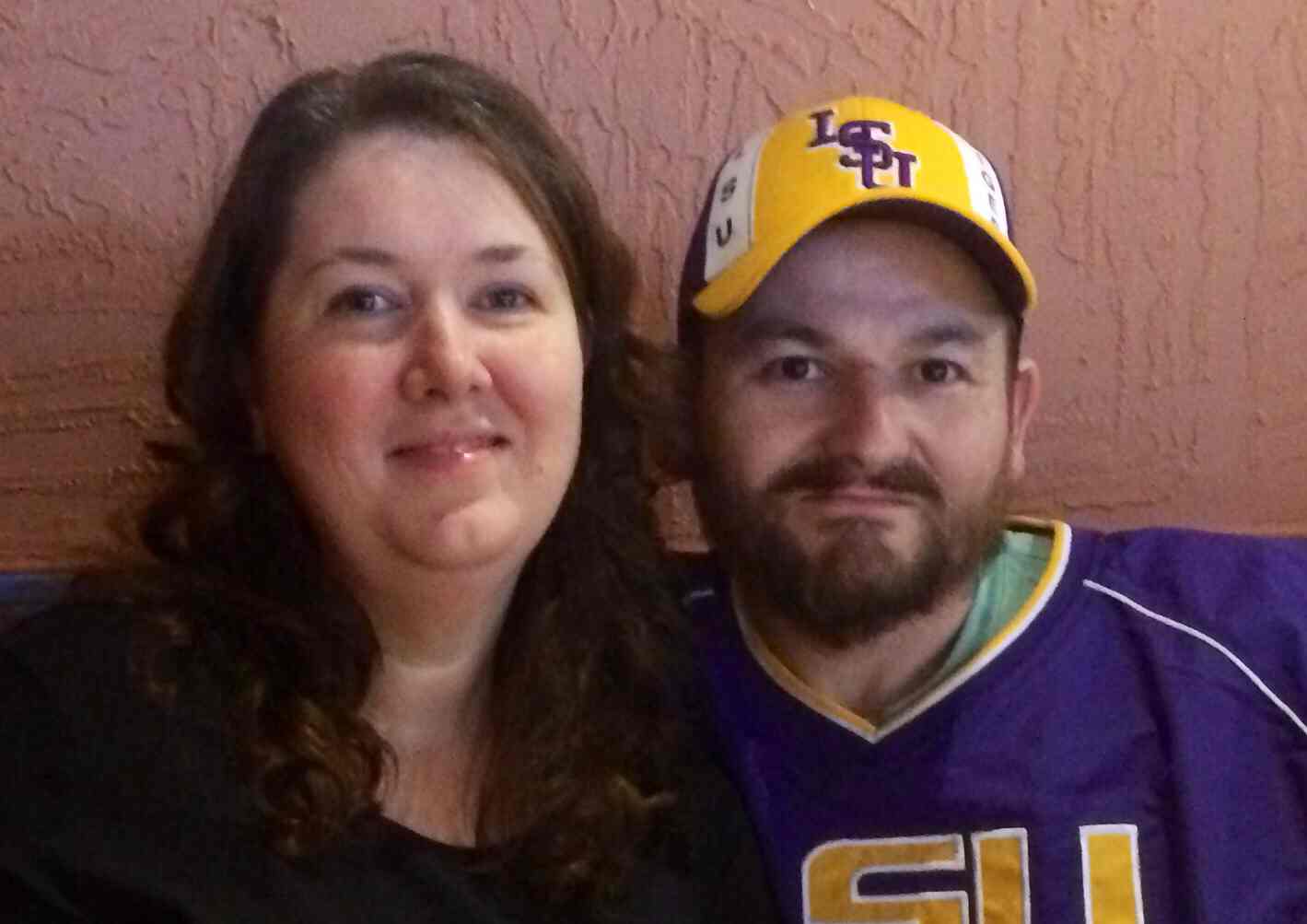
Hill's Remodeling & Handyman Service
Hill's Remodeling & Handyman Service
We do all remodeling & new construction. Will work Saturday but not Sunday in order to attend Church with my family. Will provide 24 hour emergency services on Sundays.
We do all remodeling & new construction. Will work Saturday but not Sunday in order to attend Church with my family. Will provide 24 hour emergency services on Sundays.
Paragon Pools Design And Construction
Paragon Pools Design And Construction
Will discuss all details of business with potential customers upon contact.
Will discuss all details of business with potential customers upon contact.
Reworks Reconstruction
Reworks Reconstruction
REWORK RECONSTRUCTION BEIN THE HAMMOND AREA SENCE 2000 SERVING IN THE PARISHES IN ALL TYPES OF CONSTRUCTION TRADES FROM THE GROUND UP CONSTRUCTION TO THE CAP ON THE ROOF. ALL REPAIRS INTERIOR AN EXTERIOR.MOBILE HOME REPAIR IN AN OUT AN NEW REPLACEMENT METAL ROOF WITH QUALITY MATERIALS FROM VENDORS IN THE AREA AL WORK AN REPAIRS WARRANTIED.FROM THE SMALLEST TO THE BIGGEST WE CAN HANDLE WHAT EVER YOU NEED AN HAVE LIVED IN THE AREA 45 YEARS
REWORK RECONSTRUCTION BEIN THE HAMMOND AREA SENCE 2000 SERVING IN THE PARISHES IN ALL TYPES OF CONSTRUCTION TRADES FROM THE GROUND UP CONSTRUCTION TO THE CAP ON THE ROOF. ALL REPAIRS INTERIOR AN EXTERIOR.MOBILE HOME REPAIR IN AN OUT AN NEW REPLACEMENT METAL ROOF WITH QUALITY MATERIALS FROM VENDORS IN THE AREA AL WORK AN REPAIRS WARRANTIED.FROM THE SMALLEST TO THE BIGGEST WE CAN HANDLE WHAT EVER YOU NEED AN HAVE LIVED IN THE AREA 45 YEARS
Home Depot - Covington
Home Depot - Covington
Facebook: https://www.facebook.com/Home.Depot.Covington.La
"Great! Professionally, great timing, cleanup was immaculate. Nice and very quiet ?"
Vicki-Doris B on January 2018
Facebook: https://www.facebook.com/Home.Depot.Covington.La
"Great! Professionally, great timing, cleanup was immaculate. Nice and very quiet ?"
Vicki-Doris B on January 2018
The homeowners guide to home care is here
From average costs to expert advice, get all the answers you need to get your job done.

Making updates to your home? You may need to move your gas line to fuel new appliances or meet code regulations. We’ll cover the cost of moving a gas line, plus project tips.

Pipe leak repair costs depend on the location and severity of the leak, as well as the type of pipe being replaced. Use our guide to price out repair work.

Here's a look at how much you can expect to pay to replumb your mobile home with new pipes that meet all local code requirements and environmental regulations.

Winter can be particularly harsh on your plumbing—from water heater issues to frozen pipes. As the weather gets chilly, use these tips to prepare your home and avoid a costly winter plumbing leak.

Insulating your pipes is a simple DIY project that can prevent costly damage and lower your energy bills. Learn how to insulate your pipes yourself with this easy guide.

Follow this guide to learn how to install a kitchen sink drain, from shutting off the water supply to lowering the drain outlet and connecting the P-trap.
- New Iberia, LA Gas log pros
- Parks, LA Gas log pros
- Saint Martinville, LA Gas log pros
- Belle Rose, LA Gas log pros
- Broussard, LA Gas log pros
- Youngsville, LA Gas log pros
- Plaquemine, LA Gas log pros
- Donaldsonville, LA Gas log pros
- Henderson, LA Gas log pros
- Breaux Bridge, LA Gas log pros
- Addis, LA Gas log pros
- 🌱 "Mow a small front yard"
- 🛠 "Fix a leaking pipe under the sink"
- 🏠 "Repair shingles on an asphalt roof"

